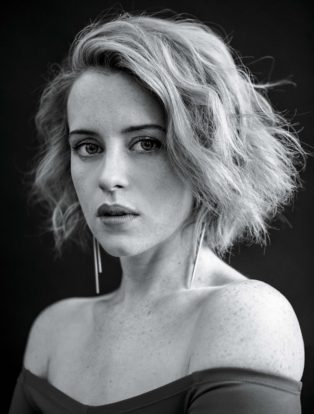The Poetry of Alias Grace
The Series' Epigraphs Capture a Sense of Doom


Set during the mid-1800s, the true story behind the Netflix series, Alias Grace, is easily as compelling as the novel by Margaret Atwood and the TV series currently available, starring Sarah Gadon as the unfortunate Grace.
In 1843 in northern Canada, two servants, Grace Marks and James McDermott, were convicted of the brutal murders of Thomas Kennear and his housekeeper, and perhaps lover, Nancy Montgomery. McDermott was hanged but Grace got a life sentence. During her many years of incarceration, Grace was studied and ultimately found to, most likely have had a split personality.
To capture the mood of the time period as well as personality of our protagonist, the six part mystery series begins each episode with the snippet of verse or prose from contemporary-at-the-time writers. None of the clips apply directly to the storyline, but do give a sense of what Grace may have been feeling at the time.
Beginning with one of the most prominent poets of the time, episode one opens with:
“One Need Not Be A Chamber To Be Haunted” By Emily Dickinson
One need not be a Chamber — to be Haunted —
One need not be a House —
The Brain has Corridors — surpassingMaterial Place —
Ourself behind ourself, concealed —
Should startle most —
Assassin hid in our Apartment
Be Horror’s least.
Episode two begins with:
“The Courtship of Miles Standish” By Henry Wadsworth Longfellow
…for it is the fate of a woman
Long to be patient and silent, to wait like a ghost that is speechless,
Till some questioning voice dissolves the spell of its silence.
Episode three opens with:
“Maud (Part II)” By Alfred, Lord Tennyson
A shadow flits before me,
Not thou, but like to thee:
Ah Christ, that it were possible
For one short hour to see
The souls we loved, that they might tell us
What and where they be!
Episode four begins with:
Rappaccini’s Daughter By Nathaniel Hawthorne
Blessed are all simple emotions, be they dark or bright! It is the lurid
intermixture of the two that produces the illuminating blaze of the infernal regions.
Episode five opens with:
The Philosophy of Composition By Edgar Allen Poe
…the death, then, of a beautiful woman is, unquestionably, the most poetical topic in the world.
Episode six and the series finale, returns to the first writer, Emily Dickinson.
“I Felt a Cleaving In My Mind” By Emily Dickinson
I felt a Cleaving in my Mind —
As if my Brain had split —
I tried to match it — Seam by Seam —
But could not make them fit.



